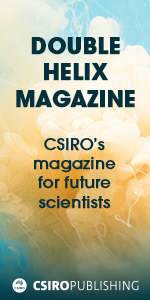
Animal Production Science
Volume 60 Number 12 2020
Ammonia gas released from the poultry litter can contribute to health problems for chickens if the concentration is high. The risks associated with ammonia are one of the leading reasons why the Australian chicken meat industry does not currently re-use litter as a floor covering for multiple grow-outs. The present review investigates the potential benefits of litter amendments, particularly acidifying agents, on the basis of overseas research and industry experience. Litter amendment use overseas has shown that they assist with effective management of ammonia volatilisation, but can also have additional positive effects. Understanding the viability of litter re-use practices that include amendments will support uptake by Australian meat chicken producers.
AN19587 Abstract | AN19587 Full Text | AN19587PDF (480 KB) | AN19587Supplementary Material (1.4 MB) Open Access Article
AN19240Impact of inbreeding on milk fatty acids of a Brazilian Holstein cattle
Inbreeding in dairy cattle populations may affect important milk quality traits. We evaluated the effect of inbreeding on milk fatty acids content and identified impacts of small magnitude for some fatty acids. In this sense, the effects of inbreeding could be observed in long-term selection and, therefore, monitoring the inbreeding levels in breeding schemes for some of these traits may be of great importance.
AN19524Testis-specific changes in gene expression of post-pubertal beef bulls divergent for residual feed intake and exposure to different pre-natal diets
Selection for feed efficiency in cattle has had undesirable effects on male reproductive development. Evaluating testes of bulls with delayed reproductive development associated with high feed efficiency, we identified differentially expressed genes and signalling pathways with significant correlations with the observed phenotype. Because selection for feed efficiency have negative associations with male fertility, managemental regimens in cow–calf farms should ensure minimum impact on fertility traits.
AN19472Nutrient concentrations and profile of non-structural carbohydrates vary among different Brassica forages
 , Mónica Gandarillas, Daniel Benavides, Jaime Cabanilla, Rubén G. Pulido, Oscar A. Balocchi and Annick Bertrand
, Mónica Gandarillas, Daniel Benavides, Jaime Cabanilla, Rubén G. Pulido, Oscar A. Balocchi and Annick Bertrand
Brassica crops, which are used to supply feed in times of seasonal shortage, have high concentrations of readily fermentable carbohydrates; however, the type of carbohydrate might affect productive and metabolic responses. All four species tested were highly digestible, although they varied in NSC concentrations and profiles, swede being high in glucose and fructose, followed by kale and turnip, whereas in forage rape, starch was the main NSC. The results have implications for managing feed supplies to meet nutritional and dietary requirements of livestock.
AN19237Maintenance of broiler performance on commercial diets diluted with copra meal and supplemented with feed enzymes
Moderate dilution of commercial feed with copra meal was shown to maintain growth of modern broilers and reduce cost of production. Enzyme supplementation allowed the utilisation of higher levels of dilution by both growing and finishing broilers. These findings will sustain the broiler industry and add value to copra meal in regions where it is readily available.
AN18608Effect of wheat- or oat-straw inclusion with wheat bran or corn grain in prepartum diets on postpartum performance of transition dairy cows
Poor nutritional management during dry period can produce significant effects on production performance and health of a dairy cow. Current study investigated the effects of feeding straw sources and energy supplements to dry pregnant cossbred cows on their lactation performance and metabolic health. Results showed that feeding wheat straw and wheat bran in dry-cow diets controlled pre-calving energy intake and improved transition to lactation phase. Animals fed wheat straw- and wheat bran-based diets showed improved milk production, with a concomitant reduction in the incidence of metabolic diseases.
AN18041Effect of a high forage : concentrate ratio on milk yield, blood parameters and oxidative status in lactating cows
 , M. P. Mollica, M. Crispino, F. Infascelli and P. Lombardi
, M. P. Mollica, M. Crispino, F. Infascelli and P. Lombardi
The effects of a feeding strategy used to produce a milk beneficial in terms of human health were studied for milk yield and composition, blood metabolic profile, and oxidative status. Such a feeding strategy, which requires a forage : concentrate ratio equal to 70 : 30, five different herbs in the forage and the use of silages prohibited, was compared with a semi-intensive strategy, and an improvement of animal oxidative status and no differences in milk yield and composition were detected throughout the trial.
AN19075Access to shade reduces DNA damage of Holstein cows under mild heat stress
Heat stress is a concern in dairy production systems, because it induces behavioural and physiological changes in animals and can reduce milk production and change its composition. In subtropical regions, shade is not always provided to cows in pastures. The present study evaluated the effects of shade provision on DNA damage and several physiological indicators of heat stress in lactating dairy cows. The outcomes from the study may encourage dairy farmers to provide shade for lactating cows.
High ambient temperature-induced heat stress has drawn greater public attention because of its detrimental impacts on animal production and animal welfare. Dietary resveratrol supplementation could protect the function of intestine and benefit the growth performance of heat-stressed broilers. Dietary resveratrol supplementation is a considerable nutritional strategy to anti-stress in animal production.
AN18495Dietary addition of lysophospholipids and vitamin C affects growth performance, serum metabolites, antioxidant capacity and carcass characteristics of broiler chickens reared under low ambient temperature
Preventing and alleviating environmental stress is becoming important in the poultry industry. Overall, dietary lysophospholipid supplementation did not improve broiler performance in cold stress condition, while the utilisation of 500 mg/kg vitamin C in the ration reduced performance of broilers under low ambient temperature. Lysophospholipid supplementation did not improve broiler performance in cold stress condition.



